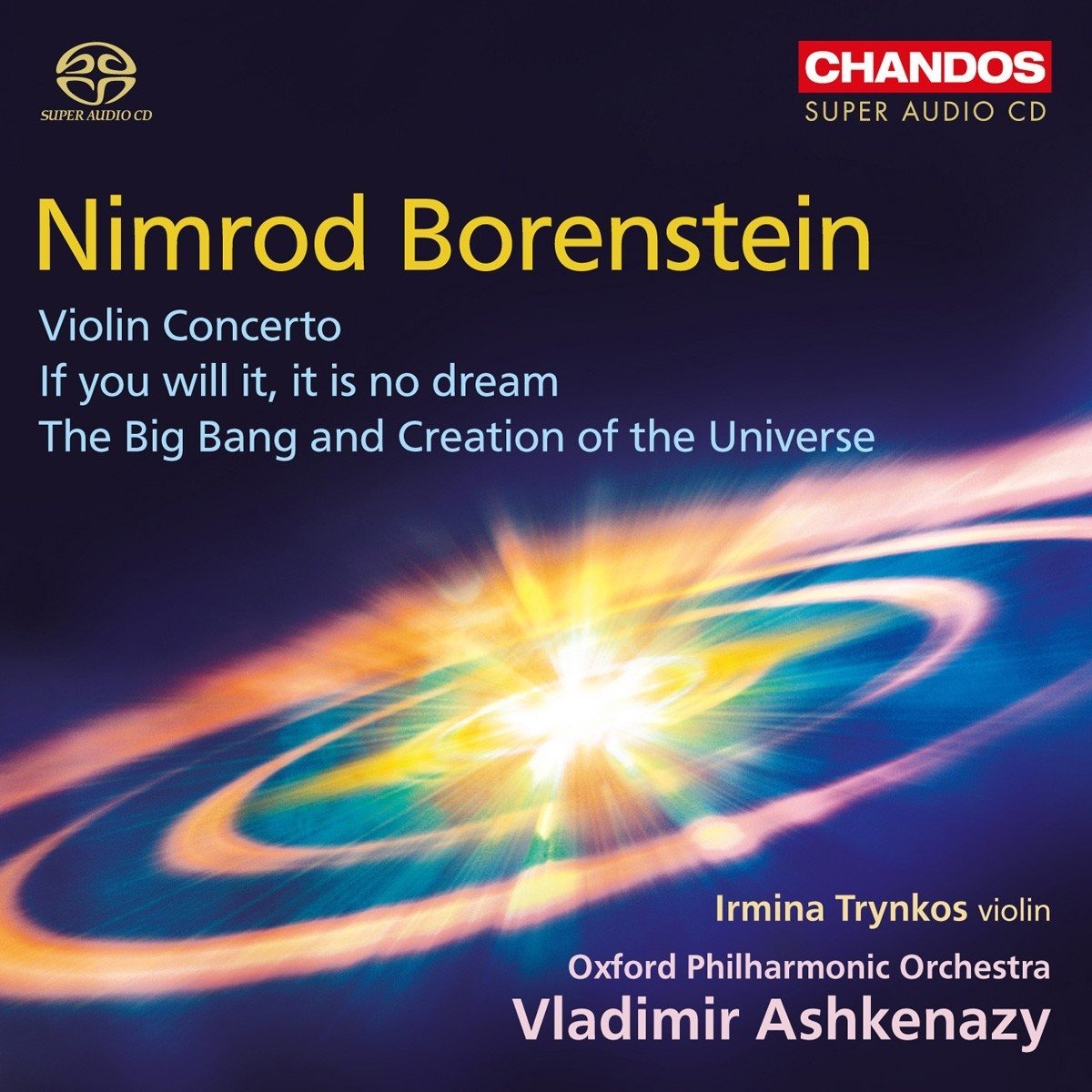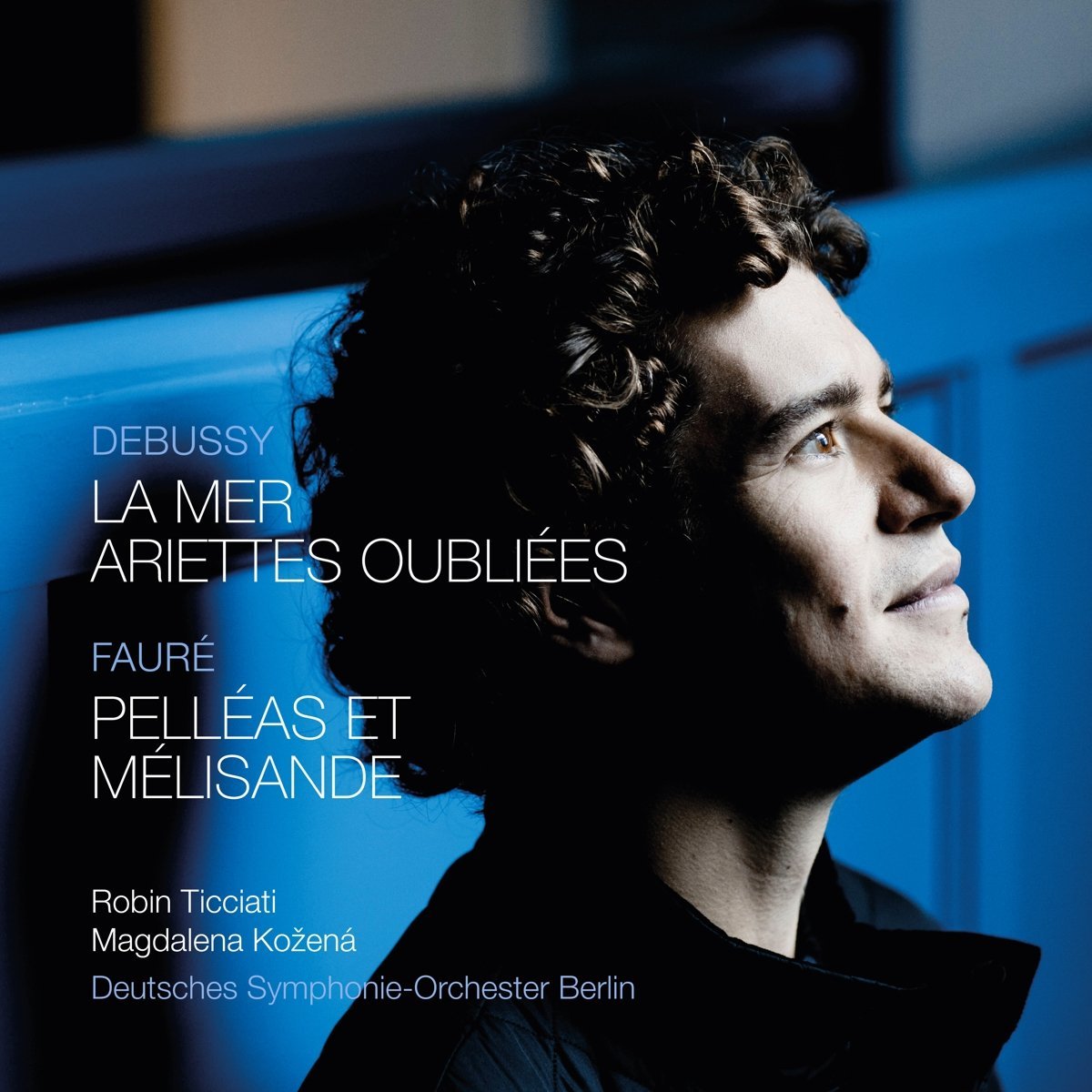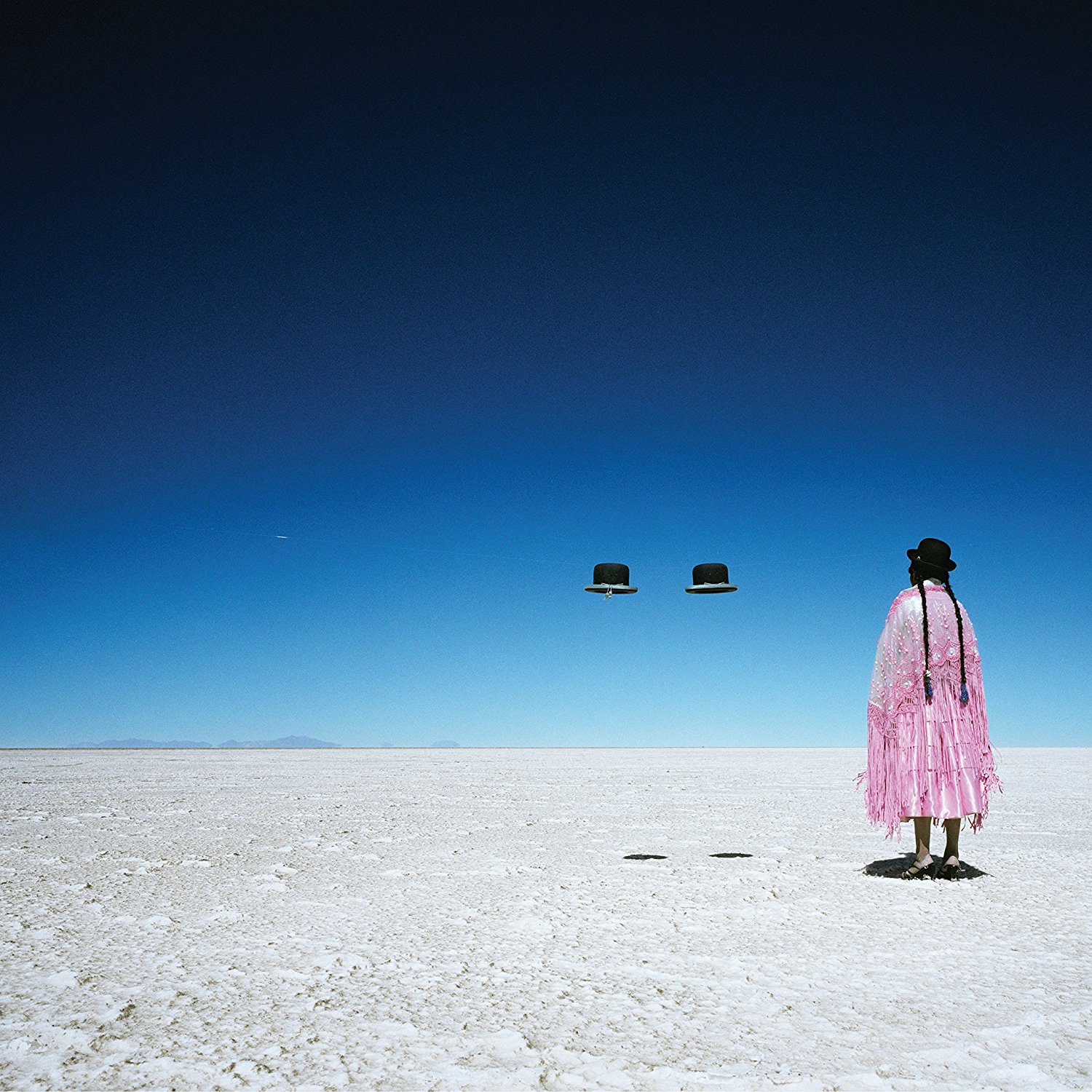Classical CDs Weekly: Borenstein, Debussy, Fauré, Longleash | reviews, news & interviews
Classical CDs Weekly: Borenstein, Debussy, Fauré, Longleash
Classical CDs Weekly: Borenstein, Debussy, Fauré, Longleash
Orchestral music from Oxford and Berlin, plus contemporary piano trios from New York

 Nimrod Borenstein: Violin Concerto, The Big Bang and Creation of the Universe, If You Will It, It Is No Dream Oxford Philharmonic Orchestra/Vladimir Ashkenazy, with Irmina Trynkos (violin) (Chandos)
Nimrod Borenstein: Violin Concerto, The Big Bang and Creation of the Universe, If You Will It, It Is No Dream Oxford Philharmonic Orchestra/Vladimir Ashkenazy, with Irmina Trynkos (violin) (Chandos)
Proof of modern music’s dizzying variety is found on this beguiling disc. And as much as I could sit for hours wallowing in Morton Feldman's collected works for solo piano, I'm far from immune to accessible contemporary music with personality. Nimrod Borenstein writes in this disc's booklet of his longing for listeners to recognise his distinct compositional voice. Without being simplistic, we're talking rhythmic sharpness, harmonic clarity and luminous orchestral colour. And in case you're nervously wondering whether this music is vacuous new age guff, trust me. It's not. Take the most recent work here, Borenstein’s 2013 Violin Concerto, a substantial four-movement work brimming with memorable ideas. Hopefully you'll be hooked within seconds, the quickfire solo writing and percussive ostinati immediately involving. You keep on listening because you want to know what will happen next, Borenstein understanding that there's more to composition than creating a personal "sound world" where naff all happens. This concerto knows where it's heading, the percussive denouement uniquely exhilarating. It’s superbly played too, by Irmina Trynkos and the Oxford Philharmonic Orchestra. The conductor, unexpectedly, is the great Vladimir Ashkenazy, utterly unfazed by the music's technical difficulties.
He's similarly confident leading these players through two purely orchestral works. The earliest is the dauntingly titled The Big Bang and Creation of the Universe, its three sections “a reflection on both the Book of Genesis and recent scientific thinking on the origins of the universe.” Scary – though I first listened blind, relishing the nifty writing for vibraphone and the music’s unpretentious sense of fun. If You Will It, It Is No Dream’s nine minutes whizz by, a propulsive, richly scored outpouring of musical energy. A terrifically entertaining, optimistic disc, performed with abundant zip and pizzazz.
 Debussy: La Mer, Arriettes Oubliées, Fauré: Pelléas et Mélisande Deutsche Symphonie-Orchester Berlin/Robin Ticciati, with Magdalena Kožená (mezzo-soprano) (Linn)
Debussy: La Mer, Arriettes Oubliées, Fauré: Pelléas et Mélisande Deutsche Symphonie-Orchester Berlin/Robin Ticciati, with Magdalena Kožená (mezzo-soprano) (Linn)
Robin Ticciati’s Linn recordings with the Scottish Chamber Orchestra share a fiery intensity, the leanness of sound brilliantly serving the music. This new release, the first made with Ticciati’s Deutsche Symphonie-Orchester Berlin, shows him relishing this orchestra’s refulgent tone. I was won over within seconds by the sumptuous string sound in the prelude to Fauré’s neglected opera Pénélope. You can understand why this delectable, Wagnerian music has fallen by the wayside, the work contemporaneous with Stravinsky’s Rite and Debussy’s Jeux. We think of Fauré as a quintessentially 19th century figure, though he actually outlived Debussy by six years. More Fauré comes in the shape of the suite drawn from his incidental music to Pelléas et Mélisande, wonderfully played, the flute solo in the “Sicilliene” ravishing. Fauré’s score was written at the same time as Debussy’s opera, and Paul Roberts’ lucid sleeve note outlines the sometimes fractious relationship between the two composers.
Debussy’s music fills the rest of the disc. Ticciati's La Mer is outstanding. The orchestral playing is superb (listen to the lower strings 2’50” into the first movement) and Ticciati’s approach combines steely rigour with winning impetuosity. This ”Jeux de vagues” really glitters, and the work’s final minutes are overwhelming. Ticciati sensibly reinstates the spiky trumpet fanfares which Debussy excised near the close: play this at full volume and you'll taste the salt. As a bonus, we've Brett Dean’s idiomatic orchestrations of Debussy's song-cycle Ariettes oubliées, sung with some relish by Magdalena Kožena. “Chevaux de bois” is a boisterous highlight.
 Longleash: Passage Longleash (Pala Garcia, violin; John Popham, cello; Renate Rohlfing, piano) (New Focus Recordings)
Longleash: Passage Longleash (Pala Garcia, violin; John Popham, cello; Renate Rohlfing, piano) (New Focus Recordings)
Mention "piano trio" and one thinks of Haydn, Schubert and Brahms, with a hard-working pianist sporadically accompanied by violin and cello acting as soprano and bass. New York’s Longleash (named after the CIA’s covert promotion of avant-garde art and music after WWII) are on a mission “to form a progressive identity for this traditional instrumentation”, commissioning new works from young composers. Five of them are included on this debut disc. Christopher Trapani's brief Passing Through, Staying Put has the strings dominant, the piano contribution brittle and fragmentary. John Popham’s blustery cello interjections enliven the spare second half. More radical still is Clara Ianotta’s disquieting Il colore dell’ombra, the violin and cello detuned and muted, the pair pitted against low, sepulchral piano notes. The playing is fearlessly accomplished, the most outré effects realised with confident ease.
A Brazilian artwork inspired ver_flies_sen by Yukiko Watanabe, the sharp, piercing string sounds suggesting shafts of light reflecting off the ceramic tiles in Adriano Varejão’s painting. Juan de Dios Magdaleno’s Strange Attractors is another discombobulating exploration of avant-garde techniques, an unsettling musical conversation which entertains as much as it alarms. And Francesco Filidei’s Corde Vuote takes us from fierce, dense dissonance to the clear open strings of the title. Longleash are ideally persuasive in each piece: this disc isn't easy listening but it's consistently involving and beautifully recorded.
Explore topics
Share this article
The future of Arts Journalism
You can stop theartsdesk.com closing!
We urgently need financing to survive. Our fundraising drive has thus far raised £49,000 but we need to reach £100,000 or we will be forced to close. Please contribute here: https://gofund.me/c3f6033d
And if you can forward this information to anyone who might assist, we’d be grateful.

Subscribe to theartsdesk.com
Thank you for continuing to read our work on theartsdesk.com. For unlimited access to every article in its entirety, including our archive of more than 15,000 pieces, we're asking for £5 per month or £40 per year. We feel it's a very good deal, and hope you do too.
To take a subscription now simply click here.
And if you're looking for that extra gift for a friend or family member, why not treat them to a theartsdesk.com gift subscription?
more Classical music
 Hallé John Adams festival, Bridgewater Hall / RNCM, Manchester review - standing ovations for today's music
From 1980 to 2025 with the West Coast’s pied piper and his eager following
Hallé John Adams festival, Bridgewater Hall / RNCM, Manchester review - standing ovations for today's music
From 1980 to 2025 with the West Coast’s pied piper and his eager following
 Kaploukhii, Greenwich Chamber Orchestra, Cutts, St James's Piccadilly review - promising young pianist
A robust and assertive Beethoven concerto suggests a player to follow
Kaploukhii, Greenwich Chamber Orchestra, Cutts, St James's Piccadilly review - promising young pianist
A robust and assertive Beethoven concerto suggests a player to follow
 Robin Holloway: Music's Odyssey review - lessons in composition
Broad and idiosyncratic survey of classical music is insightful but slightly indigestible
Robin Holloway: Music's Odyssey review - lessons in composition
Broad and idiosyncratic survey of classical music is insightful but slightly indigestible
 Classical CDs: Wolf-pelts, clowns and social realism
British ballet scores, 19th century cello works and contemporary piano etudes
Classical CDs: Wolf-pelts, clowns and social realism
British ballet scores, 19th century cello works and contemporary piano etudes
 Bizet in 150th anniversary year: rich and rare French offerings from Palazzetto Bru Zane
Specialists in French romantic music unveil a treasure trove both live and on disc
Bizet in 150th anniversary year: rich and rare French offerings from Palazzetto Bru Zane
Specialists in French romantic music unveil a treasure trove both live and on disc
 Scottish Chamber Orchestra, Ibragimova, Queen’s Hall, Edinburgh review - rarities, novelties and drumrolls
A pity the SCO didn't pick a better showcase for a shining guest artist
Scottish Chamber Orchestra, Ibragimova, Queen’s Hall, Edinburgh review - rarities, novelties and drumrolls
A pity the SCO didn't pick a better showcase for a shining guest artist
 Kilsby, Parkes, Sinfonia of London, Wilson, Barbican review - string things zing and sing in expert hands
British masterpieces for strings plus other-worldly tenor and horn - and a muscular rarity
Kilsby, Parkes, Sinfonia of London, Wilson, Barbican review - string things zing and sing in expert hands
British masterpieces for strings plus other-worldly tenor and horn - and a muscular rarity
 From Historical to Hip-Hop, Classically Black Music Festival, Kings Place review - a cluster of impressive stars for the future
From quasi-Mozartian elegance to the gritty humour of a kitchen inspection
From Historical to Hip-Hop, Classically Black Music Festival, Kings Place review - a cluster of impressive stars for the future
From quasi-Mozartian elegance to the gritty humour of a kitchen inspection
 Shibe, LSO, Adès, Barbican review - gaudy and glorious new music alongside serene Sibelius
Adès’s passion makes persuasive case for the music he loves, both new and old
Shibe, LSO, Adès, Barbican review - gaudy and glorious new music alongside serene Sibelius
Adès’s passion makes persuasive case for the music he loves, both new and old
 Anja Mittermüller, Richard Fu, Wigmore Hall review - a glorious hall debut
The Austrian mezzo shines - at the age of 22
Anja Mittermüller, Richard Fu, Wigmore Hall review - a glorious hall debut
The Austrian mezzo shines - at the age of 22
 First Person: clarinettist Oliver Pashley on the new horizons of The Hermes Experiment's latest album
Compositions by members of this unusual quartet feature for the first time
First Person: clarinettist Oliver Pashley on the new horizons of The Hermes Experiment's latest album
Compositions by members of this unusual quartet feature for the first time

Add comment